Choosing the Right Platform for Your Business Website: A Comparison of Popular Website Builders and CMS Options
Brad Sawayn
If you want your business to have a considerable online presence, then selecting the correct website platform is probably one of the steps that you need to take first. For newcomers in creating business websites, the variety of website builders and CMSs can be bewildering when it comes to selecting that which meets their needs. In this guide, we will compare some of the well-known platforms based on their features, benefits, and suitability for different businesses.
Website Builders for Business Websites
A website builder is a tool that helps people have their webpages without knowing coding. These systems usually contain many templates for plans, drag-and-drop functions, and customization options thus enabling users to create business websites that are both attractive and live within a short period of time. For small businessmen, who want to set up a web presence quickly, these are good alternatives because they integrate hosting services, content management systems, and other basic resources required for growth within one site.
1. Wix
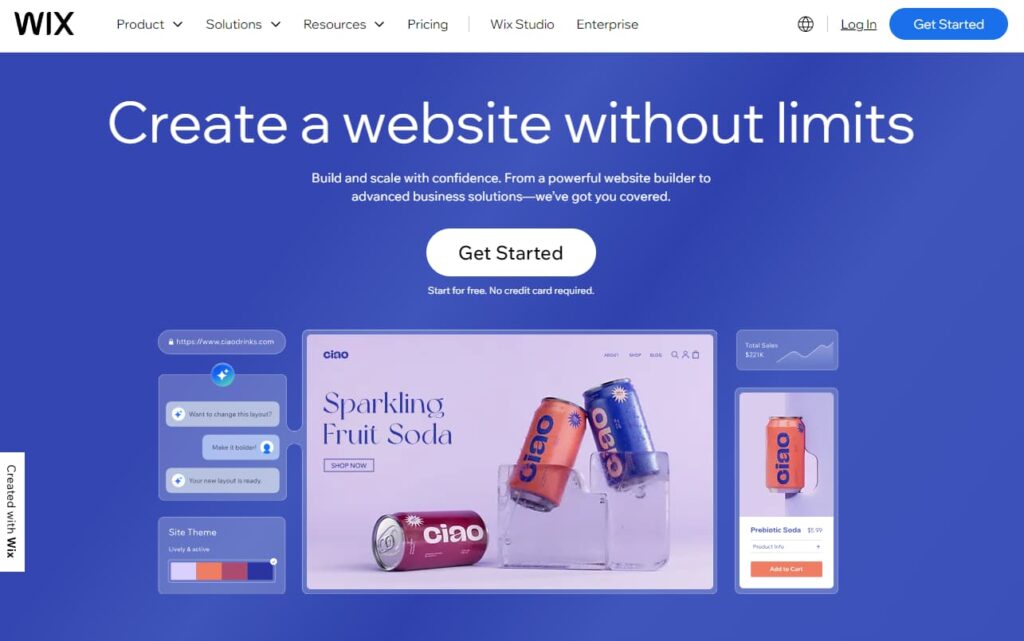
Small enterprises as well as non-technical people who are looking for a website-building platform that is easy to use can consider Wix because of its drag-and-drop interface. Users can choose from various designs and customization choices and also get built-in SEO tools. Particularly great for portfolios, small shops, or service providers, Wix does well by developing aesthetically attractive but functionally efficient websites without requiring any considerable coding know-how.
According to BuiltWith reports, there are 8,433,521 active websites on the Internet that use WIX including some like Mysterium an open-source ecosystem of tools and infrastructure, or bigger e-commerce sites such as PBS Kids.
2. Squarespace
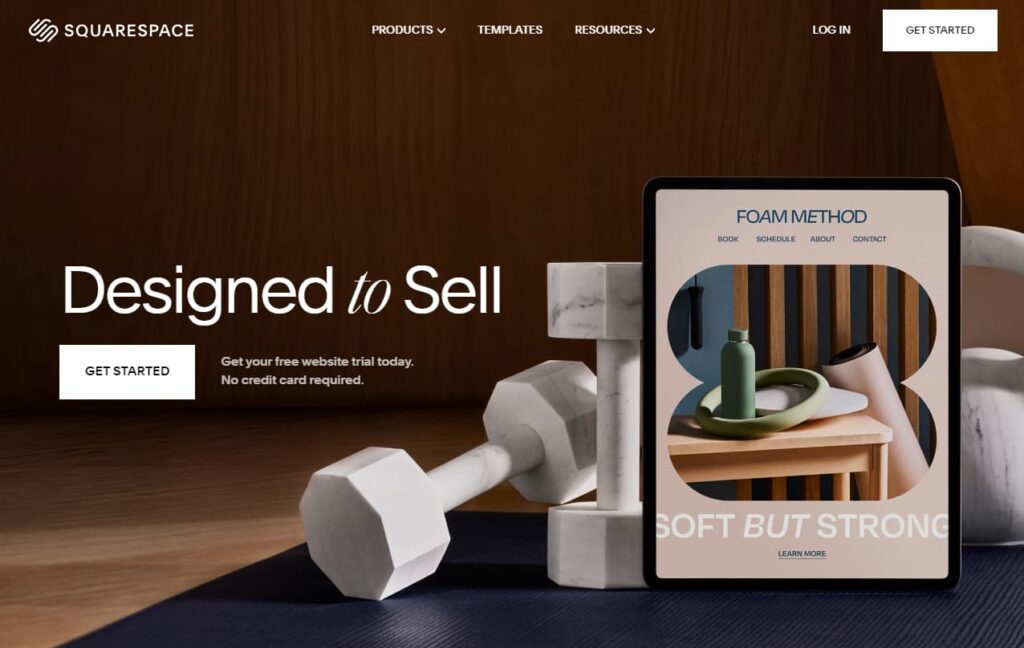
Squarespace is mostly popular for its beautiful design templates that meet the demands of creative professionals and visually-driven businesses. Built-in e-commerce features and powerful blogging tools are ideal for artists, photographers, restaurants, and online retailers searching to display their goods and services modestly.
In addition, the platform offers advanced analytics enabling users to keep track of visitor engagement metrics on their business websites so they can modify their content accordingly. It also integrates well with several third-party applications as well as marketing tools thus making it more convenient. This has made it preferable among those who value aesthetics in websites because of its dedication towards responsive design which lets them appear good across all devices.
Lastly, Squarespace cares for its customers by providing an outstanding support service that works around the clock through instant messaging or getting answers through e-mail which is a big help for people facing hurdles when constructing their websites or running them.
3. Weebly

It is often said that Weebly has one of the most user-friendly interfaces among website builders. It offers easy-to-use drag-and-drop options which save time for those who are new to creating their own websites. Additionally, this platform enables small firms looking at selling their products online to set up shop within no time, due to its e-commerce functionalities built-in form of various templates. This company’s responsive design ensures that business websites created using it remain visually appealing regardless of the device being used and provides built-in marketing tools that help advertisers reach more customers making it an ideal choice for small businesses needing an online presence quickly.
4. Shopify

A leading e-commerce platform, Shopify helps create an online store with a professional look using its customizable themes and powerful inventory management tools. It has integrated payment gateways and customer support that are very impressive for a business that is focused on online retail. The platform is scalable in such a way that it grows alongside the business, starting from small shops to large enterprises with high transaction volumes.
Shopify themes can be found in multiple places both official and third party. The official Shopify Theme Store is the most reliable place to find themes specifically designed for Shopify. There are numerous free or paid themes available in the store that have all been reviewed and approved by Shopify. The store has categorized its purchases depending on the industries they belong to, layout styles, and features that they possess making it easy to choose a suitable one.
Some other well-known places where you can get your own theme for your shop include Themeforest and TemplateMonster among others as well as PixelUnion among many others.
Content Management Systems (CMS) for Business Websites
A web-based content management system (CMS) is software or applications that allow users who have little or no technical know-how to create, manage, and modify web content. Unlike website builders which often focus on visual design and ease of use, CMS platforms provide more extensive functionality for managing site content, user permissions, and overall site architecture. They typically offer better options regarding flexibility enabling the users of business websites to design intricate websites, streamline integration of various third-party plug-ins as well as effectively manage a significant amount of online content.
While both website builders and content management systems serve this purpose, their differences come out between them regarding activities performed as compared with experiences from end users’ perspective in terms of ease and understandability. Generally speaking, website builders are more user-friendly and intended for people who are not very knowledgeable about the web creation field as they boast drag-and-drop features with many appealing templates that speed up the process. On the other hand, CMS platforms usually take longer to learn but feature several powerful tools that help users better organize their content, customize it, or scale it up.
1. WordPress
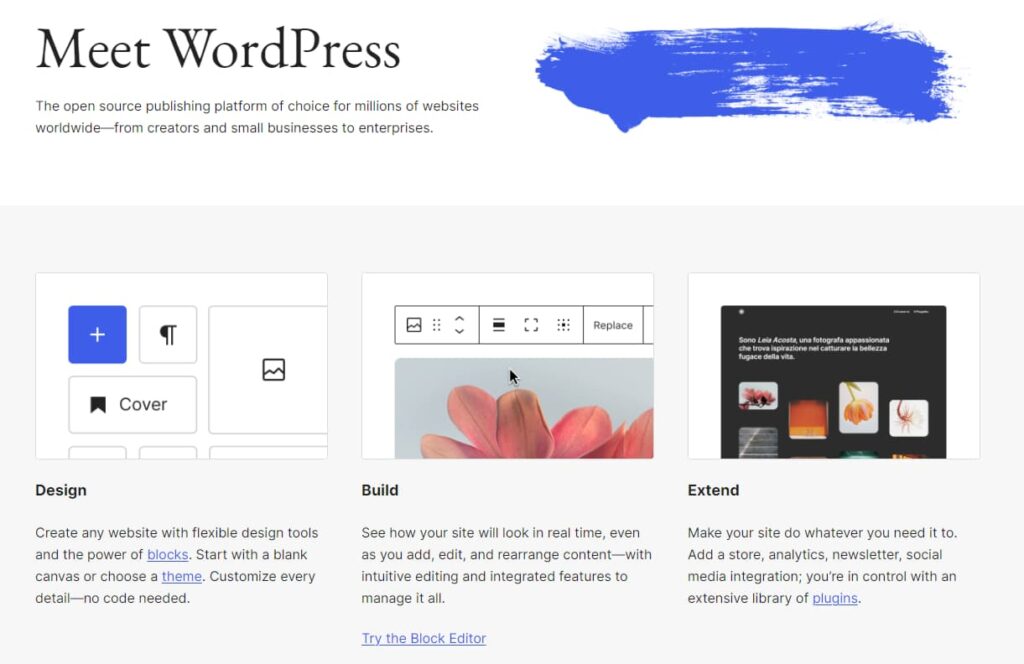
Among the most utilized CMS platforms globally, WordPress is responsible for running more than forty percent of all web pages. Its versatility and vast collection of plugins allow it to cater to different business types, ranging from blogs and portfolios to big e-commerce sites. Furthermore, it is surpassed by few insofar as SEO tools are concerned while the availability of community support makes it ideal for companies that wish to grow their online presence.
2. Joomla
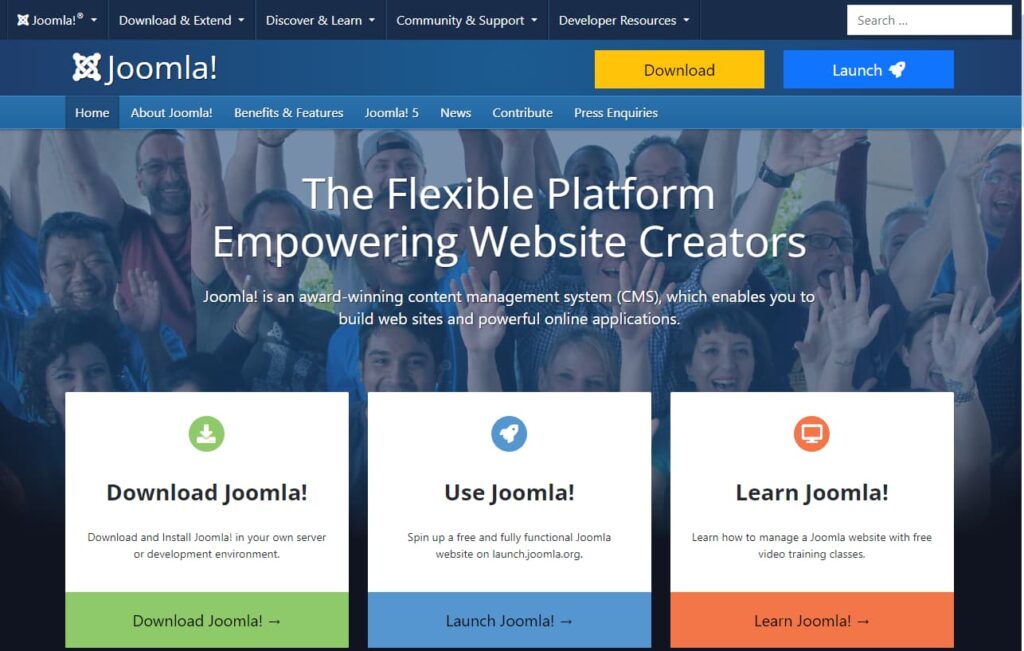
From an advanced perspective, Joomla is another flexible CMS compared to where WordPress left off, but still easy enough to use. It specializes in offering optimal management options over users’ access privileges on e-commerce websites as well as social networks. Therefore; it becomes such an incredible pick for corporations having particular requirements like community forums or membership sites.
3. Craft CMS
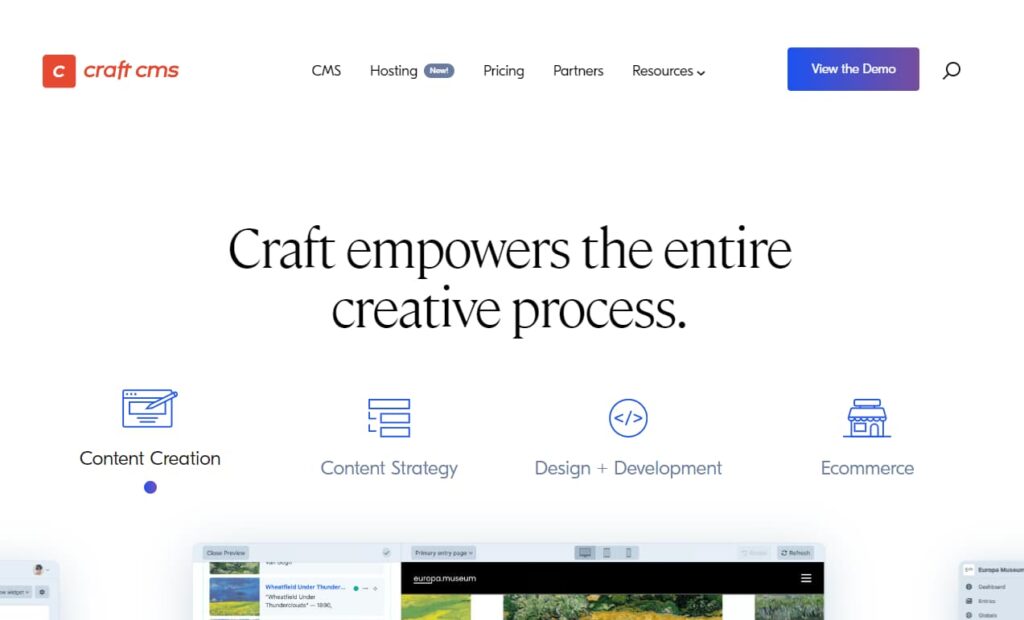
Craft CMS could be viewed as an emerging alternative designed specifically for developers who know what they want most skillfully but also very challenging because there are limitless possibilities in customizing it more than those offered by other platforms including WordPress. As such this would be suitable especially if you want your website’s content management credentials to offer much deeper levels than mere surface customization available through conventional systems used at schools’ portals or major news agencies’ online outlets among others. Additionally, unlike many others, Craft CMS comes equipped with strong security measures making it the all-time best for business websites that handle confidential information.
How to Choose the Right Platform for Business Websites
When deciding on a platform for your business website, consider the following factors.
Ease of use and technical expertise
Content management systems may require more time to master the skills of creating pages and adding the necessary functionality. If you don’t have time and desire, opt for user-friendly platforms like Wix or Squarespace.
Budget
Website builders typically have lower upfront costs compared to CMS options. However, they may charge higher fees for extra features or add-ons.
Scalability
Consider your long-term business goals and whether the platform can accommodate the future growth of your business websites. CMS platforms like WordPress and Joomla offer more flexibility to scale as your business grows.
Design Flexibility
Evaluate the design options each platform provides. If having a unique look is important for your brand, consider platforms with a wider selection of customizable templates and themes, such as WordPress or Shopify. Conversely, if you prefer simplicity, a website builder with ready-made templates like Wix or Squarespace may be sufficient.
Support and Community
Strong customer support and an active user community should be features of the platforms that you look at when making your choice. When designing or using specialized features on a product, there are chances that one may experience problems. WordPress, for example, has a huge base of users hence the availability of many resources.
Ongoing Maintenance
Consider how much you are willing to maintain the site. For security and functionality reasons, CMSs demand regular updates while website builders do them for their clients. Hence if you prefer less stressful technical duties then a website builder might work best for you in this regard.
Integrations and Add-ons
Always inquire about any third-party software or services that might be necessary for your business, including email marketing platforms, analytics tools, or payment gateways among others. This will help ensure that there are no glitches associated with these integrations which could disable our websites from performing their functions.
Analytics and Performance Tracking
To make wise decisions about our website’s progress, we need to comprehend its performance comprehensively. Therefore it is advisable to select a platform containing internal analytic instruments or enable user-friendly connection to such services as Google Analytics that will enable us to measure important indicators thereby modifying business websites accordingly.
No platform is best; it entirely depends on your individual needs, budgetary constraints as well as the level of technical knowledge. Take time to do thorough research into these systems and utilize free trials when available to understand their differences before choosing one. The right platform can help you create a sleek website that accurately portrays your brand while attracting success in business. Happy creating!
Conclusion
When picking the appropriate platform for your business website, it is important to consider your particular needs, technical know-how as well as future growth prospects. Things like Wix or Squarespace are really fun if you want something simple and visually based but CMS’s such as WordPress or Joomla offer more robust features. The key remains in selecting an appropriate platform that will provide the basis for your future success online as well as allowing for meaningful interactions with clients while at the same time enhancing the brand.



